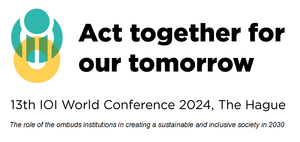Depriving the rights on liberty does not automatically lead to the loss of other civil, political, economic, cultural and social rights. Amongst them is the right to correspondence, which was denied to a prisoner who wanted to complain against the quality of service and price of the business providing services in prison.
Direct correspondence was estimated as a security risk by the prison authorities with reference that he should have sent his complaint to the prison governor who, if deemed justified, would forwarded it to the business owner. But, such judgement on a security risk was not argumented.
The Constitution guarantees freedom and secrecy of correspondence, which may only be restricted by law. Hence, according to the European Convention for Human Rights and Fundamental Freedoms anyone has the right to respect (his/her) private and family life and correspondence, except when it is necessary to restrict them in a democratic society for the purpose prescribed by the law. And the European Court of Human Rights in numerous decisions took the stand that the restriction, in order to be legitimate, must be objective, necessary and not excessive. It should also bear in mind that the prisoner's letter in this case represents a written claim every person is entitled to according to the Consumers Act.
The Ministry of Justice accepted the Ombudswoman's recommendation and instructed all criminal bodies to prevent such situations in the future. According to the instruction, decisions on deprivation of prisoners’ rights must be argumented in detail, that is, they must contain all facts and circumstances on which they are based, especially if referring to the constitutional, conventional and legal rights, like the right to correspondence.
Source: Croatian People's Ombudsman, Croatia

